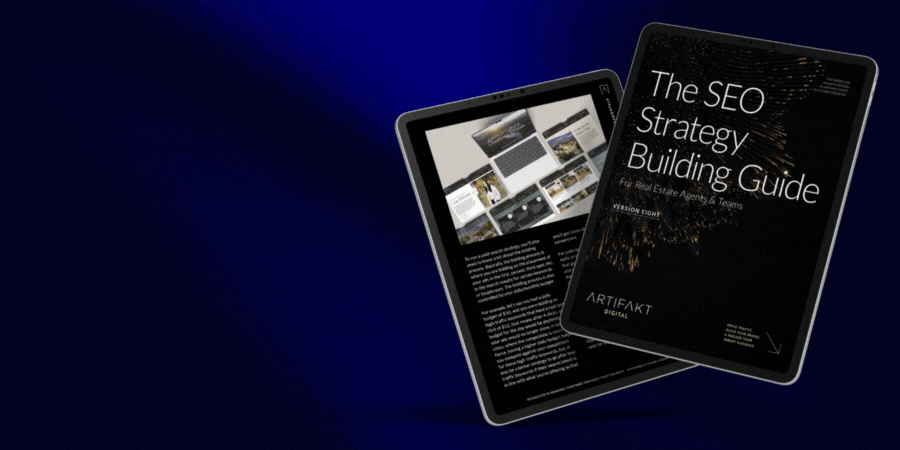Pivoting Your Website Content Strategy to See More Success in AI Search Results

There’s no doubt that how people search for answers online, and more specifically, what they use to search, is changing considerably.
More and more people seem to be getting the answers they’re looking for online directly in AI-generated search results (like ChatGPT, Perplexity, and Google AI Overviews), which is reportedly resulting in fewer people clicking through to websites to get the answers they need.
So, if you rely on organic traffic as part of your real estate digital marketing strategy, that might be cause for concern – but it doesn’t need to be, depending on how you approach your content strategy.
That’s because, despite people getting the answers they need in AI search results, there is some encouraging news: it doesn’t mean that they ALL aren’t clicking through to the additional links that show up in those search results.
People certainly still click through, especially for answers to more complicated questions, In fact, Google says that the people who do click through are often more engaged and a higher-quality visitor because they’re interested in doing a deeper dive into the topic over and above what they see in AI search results, which makes sense.
That means that even if you see less traffic to your website because of AI search results, the people that do visit your website from AI search results are likely to be more engaged, more qualified and most importantly, more likely to convert.
But, that also means that to see continued success in AI search results, you need to ensure your strategy focuses on the answers to questions that people will want to click through to and do a deeper dive into, rather than writing content that AI search results can easily answer for the person searching, which is where pivoting your content strategy can help you see more success in search.
★ Want to do a deeper dive into this topic? Have a look at these posts:
- Building a Successful SEO Strategy for AI Search Results
- Measuring the Success of Your Digital Strategy Through Engagement
- Building an Answers Engine Optimization (AEO) Strategy for AI
For example, in the past, building a content strategy completely around “the best of” type content, in your neighborhood, to establish yourself as a neighbourhood expert, was a great approach to take. It provided a great way for your target audience to discover you and your content, often for the first time, and allowed you to showcase yourself as an authority in the community (and it was great for building a solid local SEO strategy too).
But with AI search results, that’s changed a bit. Now, if someone searches “best pizza shops in my neighborhood”, they’re likely to get a list of places, directly generated in AI search results, and make a note of what they want to try – and from there, the majority of those people are likely to move on without clicking through to anything further (especially if they’ve come to trust the AI of their choice).
That means, to succeed in AI search results, the opportunity lies in pivoting your content strategy so that you produce content that is more likely to require a deeper dive, and in real estate marketing, there’s no shortage of content you can produce around that.
For example, if someone searches: “what to know about buying my first investment property”, then what the AI search results generate probably wont be enough for them to get all the information they need for such a big, important transaction.
In this case, the AI will generate a few key points to keep in mind, but the person is likely to click through to the additionally supplied links to get more through information (and be more engaged and more interested in the topic when doing so).
At the same time, by having a piece of content on your site that goes in-depth into a specific topic, you are much more likely to appear in AI searches for a wider variety of related searches. If your blog about buying an investment property has an AI overview and also answers key questions like, “how to finance an investment property” or “how to choose a good investment property”, that means you will likely also show up in AI overviews for those questions as well, casting an even wider net for engaged website visitors.
Keep in mind though, that’s not to say that “best of” posts have no place in your content strategy. If that type of content is part of your brand, and/or promoted through your social media and email channels, it might still make sense for you to produce it.
★ Want to learn more about building a content strategy? Have a look at these posts:
- The Benefits of Building a Long-Form Real Estate Content Strategy
- Creating a Content Strategy Based On Emotional Search Intent (To Get Better Leads)
- Creating an Evergreen Real Estate Content Strategy
- Creating a People-Powered, People-First Content Strategy
AI search results is constantly changing, but one thing’s for sure: it’s seemingly here to stay, but that doesn’t mean your organic strategy is no longer relevant – it’s quite the opposite.
To see success in AI search results, you simply need to pivot your content strategy to focus on high-quality, detail-researched, well-written content, written about topics that will require a deeper dive, which is more likely to bring in a more engaged visitor that’s likely to see you as an authority – and as a result, reach out to work with you.
Want to learn more about SEO and get more traffic to your website? Our SEO Strategy Building Guide is a mix of curated content and self-guided workbook that will help provide insight on how you can build and implement a modern SEO and overall search strategy.



















